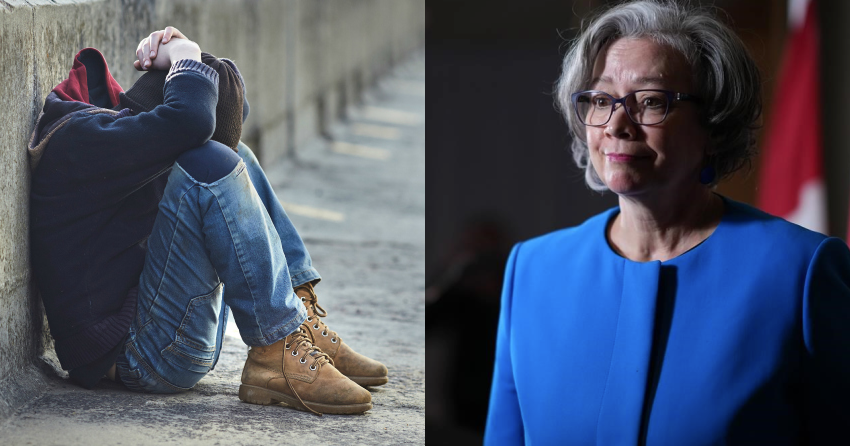British Columbia’s Mental Health and Addictions Minister Jennifer Whiteside has said ending the province’s three−year drug decriminalization project won’t save "a single life," as the overdose death toll continues to rise.
Whiteside said in a statement marking the one−year anniversary of the start of the project that its goal is to reduce shame and make addicted people more comfortable reaching out for help.
On Jan. 31 last year, Health Canada issued BC a three−year exemption under the Controlled Drugs and Substances Act allowing adult drug users to carry up to 2.5 grams of opioids, cocaine, methamphetamine and ecstasy for personal use.
The exemption came amid an overdose crisis that has claimed almost 14,000 lives in BC since a public health emergency was declared in April 2016.
Deaths due to suspected illicit drugs hit a record 2,511 last year, something Whiteside said is "concerning."
She said toxic drug deaths are increasing across the country and BC is no exception.

"Ending this measure will not save a single life," Whiteside said in the statement. "As the toxicity of illicit street drugs continues to increase, more people are at serious risk."
She said there was "no single solution" to the emergency, and the government would continue to use "every tool available to save lives and connect people to care."
BC’s retiring chief coroner Lisa Lapointe has called for the government to introduce the non−prescription safe supply of drugs, something Premier David Eby rejects.
Eby last week called it a "fundamental issue" of disagreement with Lapointe.
Decriminalization has brought criticism from municipal and opposition politicians, who said it has allowed open drug use in public places.
The opposition BC United party said it will immediately end decriminalization if elected in October, calling it a "failed and reckless" strategy.
“Over the past year, BC has been left victim to David Eby’s harmful decriminalization experiment, which has utterly failed to achieve its intended goals,” said BC United Leader Kevin Falcon.
“Instead of saving lives, decriminalization has contributed to a record-breaking loss of life in our province. It has done nothing to increase treatment and recovery services or to protect our most vulnerable citizens.
"The NDP charged ahead with this experiment without implementing the necessary safeguards, leaving families and communities paying the price.”
The provincial government moved to make legislative changes expanding areas where drug use is prohibited, but a nurses group went to BC Supreme Court, where a judge temporarily stayed the law in December, citing harm to those who use drugs.
The BC government is appealing the decision.
Police in BC have also expressed disappointment in the court ruling, while supporting decriminalization.
Deputy Chief Const. Fiona Wilson of the Vancouver Police Department, who is also president of the BC Association of Chiefs of Police, said in a statement issued by Whiteside’s ministry that police leaders "stand committed in our desire to not criminalize those who use drugs, but to redirect individuals to alternate pathways of care."
"This is a complex public−health crisis that we must continue to work together to address as we know the overdose crisis continues to devastate communities throughout British Columbia,” Wilson said.
"Senior police leaders in British Columbia recognize the importance of a compassionate and evidence-based approach to ensure people who use drugs receive the integrated care they require," she added.
South of the border, meanwhile, Oregon's experiment with decriminalization has hit serious roadblocks.
The state effectively legalized drug use in 2020 after 58 per cent of voters backed a referendum on the policy.
As in BC, however, drug deaths have increased, with the state's governor declaring a state of emergency in Portland – Oregon's biggest city – this week due to the fentanyl crisis.
According to a survey last year, a majority of voters in Oregon now want to repeal the legalization measure, while various officials and politicians have blamed it for worsening the drug deaths disaster.
– With files from Canadian Press

















